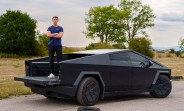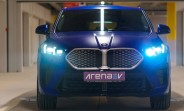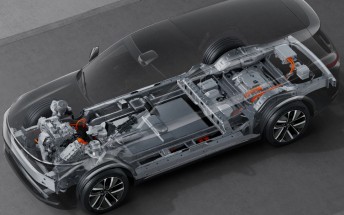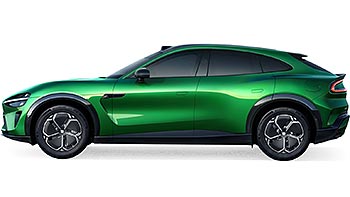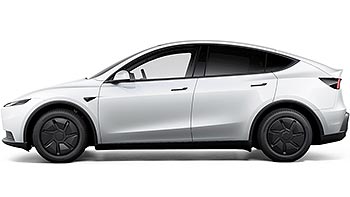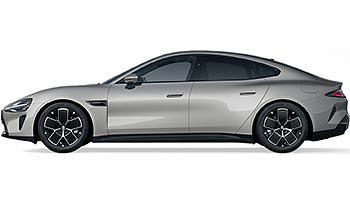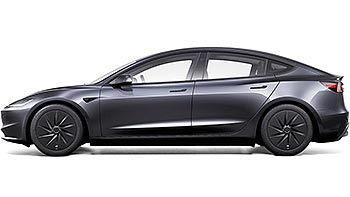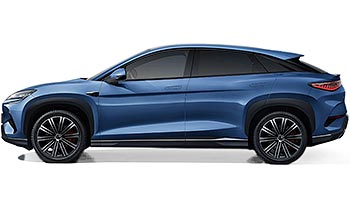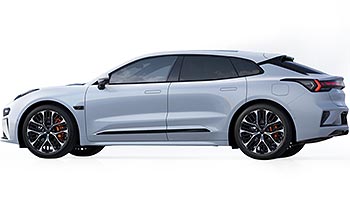BYD leads the global EV race as Tesla slips away

The world's shift to battery power is accelerating, and the fight for supremacy in the EV market is tighter than ever. New figures show global sales of New Energy Vehicles (NEVs), which include all battery-powered and plug-in hybrid models, hit 5.39 million units in the third quarter of this year. This is an impressive 31% increase from the same time last year. At the head of this accelerating pack are the two giants: China's BYD and the American powerhouse, Tesla.
In the pure Battery Electric Vehicle (BEV) category, BYD holds the current crown, but just barely. The brand captured 15.4% of the global market share, maintaining its spot as the top seller. But BYD's lead showed a small crack - the company moved 582,522 passenger BEVs in the three-month period, which was a remarkable 31.37% jump compared to last year's sales, but a 4.03% decline from their own performance in the previous quarter.
 Source: TrendForce
Source: TrendForce
Right on BYD's tail is Tesla, which is clearly finding a second wind. The American automaker landed in second place with 13.4% of the worldwide market. Tesla posted a giant surge in sales compared to the three months before, growing by 29.41%. This big push resulted in 497,099 vehicle deliveries globally in the third quarter. This impressive boost came from two key areas: US buyers rushing to meet subsidy deadlines, and renewed growth for the brand in the Chinese market.
But the real story of disruption is taking place just below the two leaders, where several smaller, fast-moving brands are stealing market share from established players. Geely Auto showed strong growth, grabbing 6% of the BEV market, followed closely by Leapmotor, which secured 4.1%. These two quickly growing challengers have now surpassed XPeng, which holds 3.1% of the market.

Even tech giants are getting into the game, with Xiaomi securing 2.9% and ranking eighth overall. Unfortunately, many legacy automakers are struggling to keep up. Volkswagen slipped to seventh place, unable to offset major declines in China despite better sales in Europe and the US. BMW's BEV sales are declining as well, putting pressure on its full-year goals.
The plug-in hybrid segment, which includes cars that use a battery and a gasoline engine (PHEVs), tells a similar story of BYD domination mixed with intense competition. BYD remains the leader here, too, with an enormous 27.9% market share. But even this segment reveals how tough the market is becoming. Despite a tiny bump in sales compared to the previous quarter (up 0.56%), BYD's total PHEV sales of 523,069 units were down sharply by 23.73% year-over-year.

The competition for plug-in hybrid buyers is getting fiercer by the day. Aito rose to second place, while Chery is the one to watch, jumping to third with a rapid growth that secured it a 6.6% market share. Geely also moved up to fourth. This is bad news for brands like Li Auto, which previously held the second-place spot. Li Auto delivered only 93,211 vehicles, seeing its sales drop by 39.01% compared to last year. The brand's market share is shrinking as more competitors launch EREV models like the new XPeng X9 PowerX.
The road ahead for electric cars will continue to feature strong overall growth, but with regional bumps along the way. Analysts project that global NEV sales will reach 20.43 million units in 2025 - a huge 25% increase from the year before. This trend is expected to continue, with a forecast of 22.8 million units by 2026. Changes to government incentives, such as the expiration of US subsidies and changing Chinese incentives, will cause some turbulence, but the worldwide shift toward electric power will keep pushing the market to new heights.
Related
Reader comments
Nothing yet. Be the first to comment.



